Acknowledgment of Country
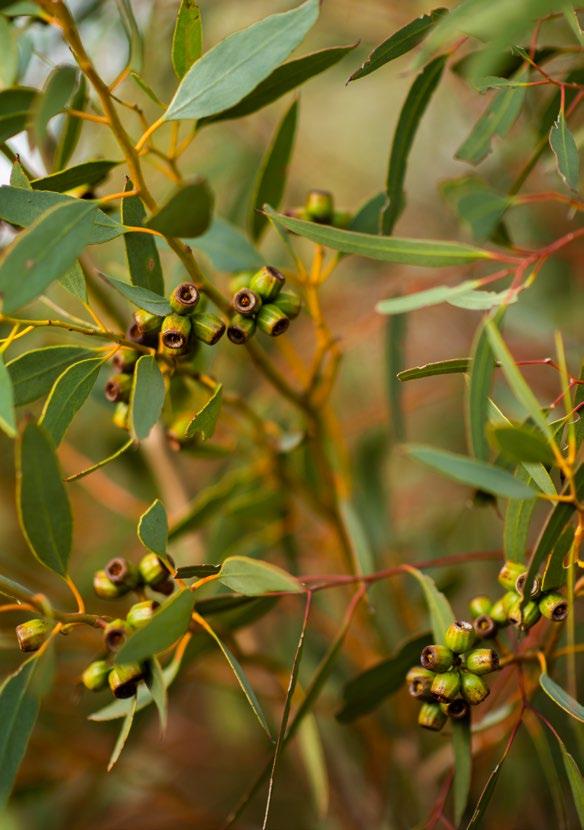
Caring for Our Common Home Archdiocese of Adelaide Laudato Si' Action Platform and Strategic Plan
The Archdiocese of Adelaide acknowledges the occupation and care of the land, waterways and sea by the Traditional Custodians and their continual cultural connection to country as expressed through their history, music, language, songs, and dancing. We acknowledge all Aboriginal and Torres Strait Islander peoples as having the oldest continuing cultures on the planet.
A Message from the Archbishop and Director of Pastoral Life and Mission
Dear Sisters and Brothers in Christ,
As an Archdiocese we continue our commitment to listening to the cry of the earth and the cry of the poor and responding with appropriate and effective action.
The introductory statement and the motions of the Fifth Australian Plenary Council affirmed our local commitment by:
a. asking for the development of Laudato Si’ Action Plans that recognise the sacred duty to care for and protect the Earth as a common home for all God’s creatures, including the generations to come;
b. encouraging all Catholic people, families, parishes, dioceses, eparchies, religious institutes, educational institutions, and other Catholic organisations to accept Pope Francis’ invitation to join the Laudato Si' Action Platform and either develop Laudato Si' Action Plans, or participate in existing Laudato Si' Action Plans, as a vehicle for their ecological conversion; and

c. promoting initiatives in Church and society which promote and defend human life from conception to natural death, especially those who are most vulnerable.
In light of this, we encourage every person, family, parish, community, school, agency and institution within the Archdiocese to embrace this Laudato Si' Action Plan, and adapt it to respond to their local reality.
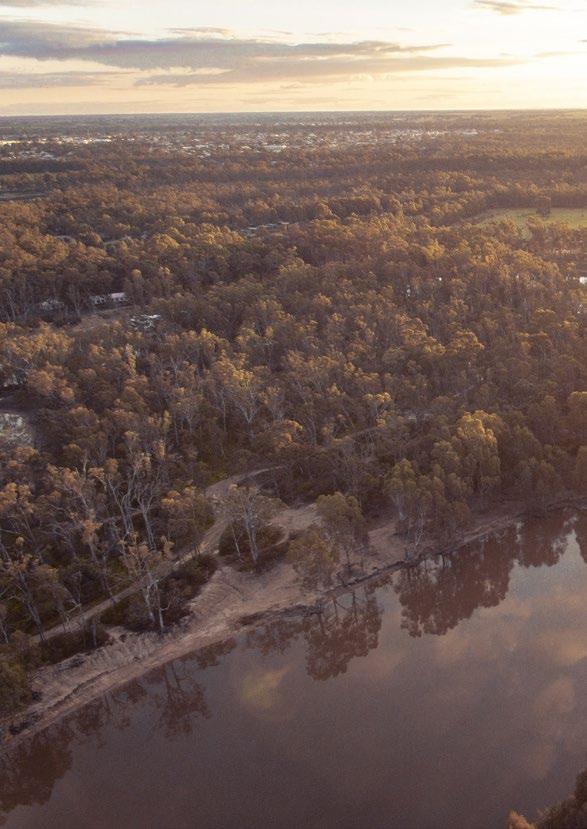 +Patrick O’Regan Archbishop of Adelaide Sarah Moffatt Director of Pastoral Life and Mission
+Patrick O’Regan Archbishop of Adelaide Sarah Moffatt Director of Pastoral Life and Mission
About the Council for Integral Ecology?
Pope Francis’ landmark encyclical, Laudato Si', became the inspiration for the creation of a diocesan council whose work would be to engage with all people to bring about a deeper understanding and practice of integral ecology. In November 2020, Archbishop Patrick O’Regan commissioned the Archdiocesan Council for Integral Ecology. In early 2022, the Council for Integral Ecology developed its vision and mission statements:
Vision Statement
The Council for Integral Ecology is the Archdiocesan body responsible for leading the implementation of Laudato Si'. in the life and work of the Catholic community for the advancing of God’s plan for a world of justice, peace and ecological restoration.
Mission Statement
Grounded in our Catholic faith and inspired by the teaching of Laudato Si’, the Council for Integral Ecology seeks to lead cultural transformation for the common good of all.

We aim to activate parish and grassroots networks and through education and formation, collaborate with the wider community to progress and activate healing of people and planet.
What is Integral Ecology?
Integral Ecology is a concept that explores the interconnectedness of all things political, social, cultural, economic and environmental. It is a way of understanding the relationship between humanity, all of Creation, and God. It explores the reality that the decisions we make impact other people, the environment and social and political systems. Seeing all things as connected enables us to make decisions which honor the integrity and dignity of all people and indeed all of Creation.
In September 2022 the Archdiocese enrolled in and committed to the Laudato Si’ Action Platform.
This plan will be the responsibility of the Archdiocesan Council for Integral Ecology to develop further strategies, review and engage local communities in further action.
Following are the Laudato Si' Goals and the first steps the Council has proposed for implementation.
Goal One: Ecological Education
The Archdiocese of Adelaide commits to fostering ecological awareness and transformative action by:

• Developing of parish resources for the Season of Creation;
• Developing of formation resources, programs and immersion experiences including those that strengthen intergenerational relationships;
• Promoting Laudato Si' in Parishes in an ongoing way and encouraging its incorporation into Sunday liturgies;
• Providing regular articles in church and community newsletters that highlight individual and collective action;
• Facilitating connections with other partners in this work.
What is Ecological Conversion? Ecological Conversion is the transformation of our hearts, minds, and behaviours toward God, neighbour and Creation as a response to an encoutner with Jesus Christ. It is marked by a change in the way we see, interact with and care for one another and our common home.
Goal Two: Ecological Spirituality
The Archdiocese of Adelaide commits to discovering God in the beauty of creation and the pain of the afflicted by:
• Making a public commitment to the Uluru Statement from the Heart including the development of resources and Reconciliation Action Plans for parishes, schools and communities within the Archdiocese;
• Collaborating with existing bodies to spread the message of Laudato Si' including the Diocesan Pastoral Council and its overall formation plan;
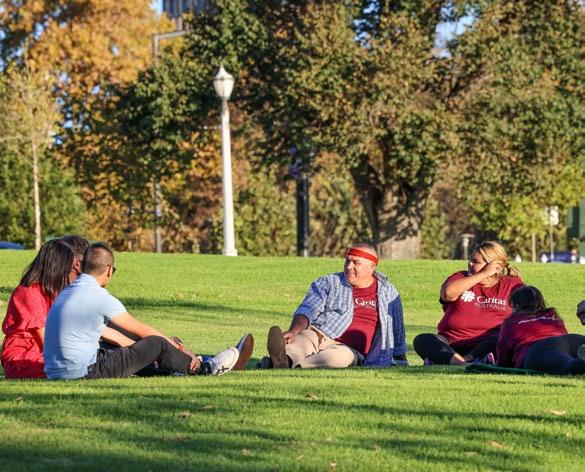
• The development of a monthly “Prayer for the Planet” series;
• Hosting an annual Diocesan Integral Ecology Retreat.
Goal Three: Ecological Economics
The Archdiocese of Adelaide commits to recognising the interdependence of economic, social and ecological flourishing by:
• Auditing Archdiocesan investments and the development of procurement policies which includes parish alignment;
• Committing to reducing our institutional footprint and acheiving carbon neutrality by 2030;
• Assisting parishes to become certified Zero Carbon Organisations;
* Engaging one or more parish communities in this journey as a pilot program
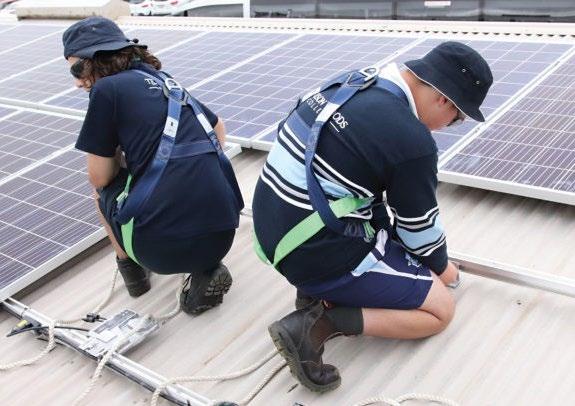
Goal Four: Adoption of Sustainable Lifestyles
The Archdiocese of Adelaide commits to living within the Earth’s limits and being frugal by:

• Modelling sustainability at its events in use of resources;
• Encouraging individuals, schools, parishes and communities in the sharing of resources (e.g. repair cafés, tool libraries, trading communities and recycled goods);
• Providing education and formation for finance committees and those in decision-making roles regarding sustainable resourcing;
• Investigating and disseminating practical processes and avenues for parishes, schools and communities to implement practical solutions (e.g. solar panels, energy audits, recycling).
Goal Five: Response to the Cry of the Poor and the Cry of the Earth
The Archdiocese of Adelaide commits to protecting our common home and promoting eco-justice by:
• Supporting parish-owned and maintained green spaces and ecological gardens that contribute to biodiversity, such as
* habitats for pollination and wildlife;
* native plantings, especially winter-flowering and water-wise plants;
* involvement in projects like Trees for Life.
• Engaging with persons of influence in the business world to discuss Environmental Social Governance and Laudato Si' investments;
• Using native and indigenous plants as floral arrangements in churches.
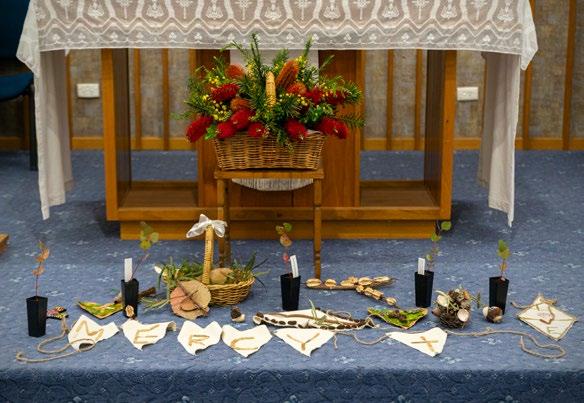
Goal Six: Community Engagement & Participatory Action
The Archdiocese of Adelaide commits to promoting everyone’s involvement in ecological action by:
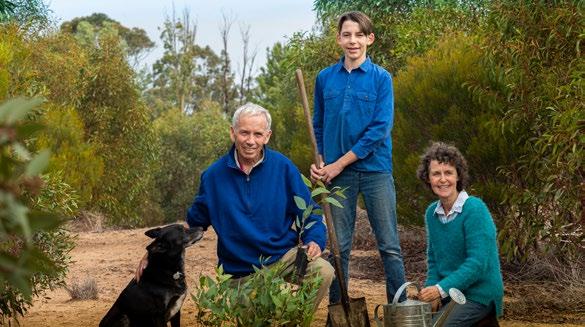
• Hosting regular Ecological and Justice Network gatherings;
• Conducting joint ecumenical and interfaith activities (e.g. Season of Creation prayer services and activities);
• Encouraging “parish twinning” for specific events and initiatives;
• Building on existing partnerships with Caritas Catholic Earthcare, Centacare, St Vincent de Paul and the Catholic Education Ecological Advisory Committee;
• Promoting a Laudato Si' photo competition
The Council for Integral Ecology will encourage and assist parishes to enter into the process of ecological conversion by developing their own Laudato Si' Action Plans in cooperation with Caritas Earthcare. This will include parishes committing to developing a Parish Plan by 2024 and encouraging parishioners to consider personal or household commitments, as well as groups within the parish.
A Prayer for Our Earth
From Laudato Si'
All-powerful God, you are present in the whole universe and in the smallest of your creatures. You embrace with your tenderness all that exists. Pour out upon us the power of your love, that we may protect life and beauty.
Fill us with peace, that we may live as brothers and sisters, harming no one. O God of the poor, help us to rescue the abandoned and forgotten of this earth, so precious in your eyes.
Bring healing to our lives, that we may protect the world and not prey on it, that we may sow beauty, not pollution and destruction.
Touch the hearts of those who look only for gain at the expense of the poor and the earth.
Teach us to discover the worth of each thing, to be filled with awe and contemplation, to recognize that we are profoundly united with every creature as we journey towards your infinite light.
We thank you for being with us each day. Encourage us, we pray, in our struggle for justice, love and peace. Amen.


